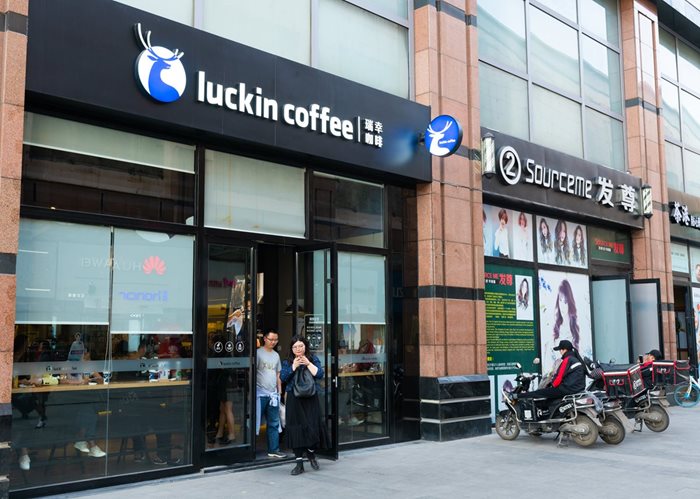Xiamen-based coffee chain files for bankruptcy in order to facilitate restructuring of debt, but insists day-to-day store operations will not be impacted

Luckin Coffee closed 235 locations in China during 2020, but retains a near one-fifth share of the country's branded coffee shop market
In a press statement, Luckin Coffee said the Chapter 15 filing would enable it restructure its financial obligations, with day-to-day operations unaffected and stores remaining open.
“The company continues to meet its trade obligations in the ordinary course of business, including paying suppliers, vendors and employees,” the company said.
Chapter 15 Bankruptcy enables foreign companies with assets in multiple countries to file for bankruptcy through the US court system in order to protect the interests of creditors and maximise the value of a debtors’ assets.
Once touted as a significant challenger to Starbucks’ dominance in China, Luckin Coffee expanded at breakneck speed after launching in late 2017, but has since been rocked by financial irregularities and the Covid-19 pandemic.
In April 2020 Luckin Coffee revealed as much as 2.2bn yuan of its reported 2019 sales ($340m) had been
fabricated. The revelations resulted in a number of high profile sackings at the coffee chain, including its CEO Jenny Zhiya Qian, and COO, Jian Liu, who were implicated in the scandal. In June 2020, the Xiamen-headquartered company delisted from the Nasdaq.
In September 2020 China's State Administration for Market Regulation handed 45 companies, including two Luckin Coffee entities,
a combined fine of 61m yuan ($9m) for ‘providing substantive assistance for false advertising’ that broke Chinese fair competition rules.
World Coffee Portal data shows Luckin Coffee closed net 235 stores in China during 2020 to operate a total of 4,272 sites. Meanwhile, Starbucks opened 322 stores across the vast east-Asian nation and now operates 4,447 locations.
However, despite significant challenges over the last 12 months, Luckin Coffee retains a near 20% share of China’s branded coffee shop market, which grew by 5% over the last 12 months to reach 21,464 outlets.
The coffee chain’s pioneering e-commerce strategy, which revolves around app-enabled delivery, pick-up and a nimble dark kitchen format, remains highly influential and has been adopted by coffee chains around the world seeking to adapt to the challenges of the pandemic.